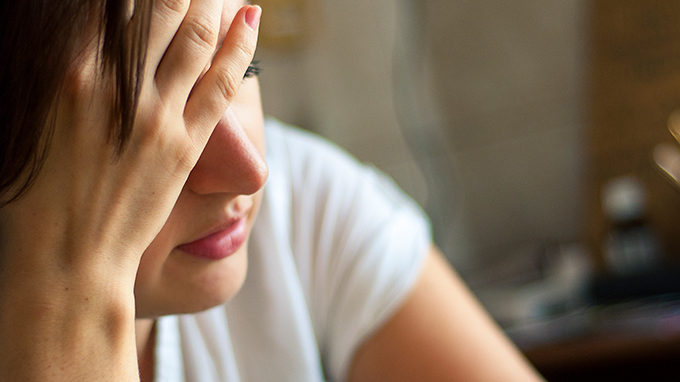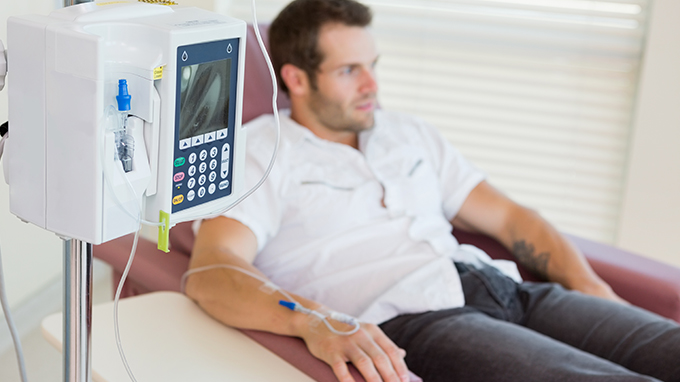Sleep length determines life
People must sleep for 8 hours a day? Surveys show that people who sleep an average of 7-8 hours a night have the longest life span; people who sleep an average of less than 4 hours a night have 80% of them. The best sleep time for different ages is different, and you should sleep scientifically according to your age.

60 years old and older People: Sleep 5.5~7 hours a day
The elderly should go to bed before 12 o’clock every night. There are 7 hours to sleep at night, even 5.5 hours is enough. According to data released by the Alzheimer''s Association, elderly people whose sleep is restricted to less than 7 hours per night can delay brain aging by 2 years. And long-term sleep for more than 7 hours or lack of sleep will lead to poor attention, and even Alzheimer''s disease, increasing the risk of early death.
Suggestion: The most common sleep problems for the elderly are dreaminess and insomnia. Dreaming is due to the deterioration of the brain function of the elderly; insomnia is mostly caused by the reduction of melatonin secretion in the body, melatonin is one of the important factors that determine sleep in the body. Elderly people who have poor sleep quality at night are better to develop the habit of taking a lunch break. The time should not exceed 1 hour. Otherwise, the central nervous system of the brain will be inhibited more deeply, and the blood flow in the brain will be relatively reduced, and the metabolism in the body will be slowed down, which will easily cause discomfort and even more sleepiness after waking up.
Adults between 30 and 60 years old: sleep about 7 hours a day
Adult men need 6.49 hours of sleep, women need about 7.5 hours, and should be guaranteed "Quality Sleep Time" from 10pm to 5am. Because people can easily reach deep sleep at this time, which helps relieve fatigue. A 22-year follow-up study of 21,000 adults in Finland found that men who sleep less than 7 hours are 26% more likely to die than men who sleep 7-8 hours, and women are 21% higher. ; Men who sleep more than 8 hours are 24% more likely to die than men who sleep 7-8 hours; women are 17% higher.
Recommendations: If people of this age lack sleep, they are mostly related to mental dysfunction, or bad habits such as overeating caused by stress. In addition to alleviating the pressure as much as possible, you can also work hard up and down in the sleeping environment, such as reducing noise, ventilation, proper shading, etc., and choose a pillow with a height of 10 to 15 cm and moderate hardness. Those who still can''t sleep enough can also recuperate by taking a 1-hour lunch break.
13-29 year olds: sleep about 8 hours a day
young people of this age usually need to sleep 8 hours a day, and must follow early sleep The principle of getting up early to ensure deep sleep at about 3 o''clock at night. Normally, you should ensure that you go to bed at 24:00 at the latest, get up at 6 in the morning, and try not to sleep on the weekends. Sleeping for too long can disrupt the circadian body clock, which can lead to lack of energy, affect memory, and miss breakfast, causing eating disorders.
Recommendations: Young people are used to staying up late, which will directly affect their mental state the next day, and easily cause skin damage, such as acne, acne, chloasma and other problems. Staying up for a long time will also affect endocrine, resulting in decreased immunity, colds, gastrointestinal infections, allergies, etc. will come to your door, and there will be mental symptoms such as forgetfulness, irritability, and anxiety. Therefore, the most important thing for young people is to regulate their lives. Do not eat one hour before going to bed, and take a nap for half an hour at noon, which is more beneficial to the body.
Children from 4 to 12 years old: sleep 10 to 12 hours a day
Children from 4 to 10 years old sleep 12 hours a day is necessary, every night Go to bed around 8 o''clock and take a short nap at noon. Older children sleep for 10 hours, or even 8 hours is enough. If the child lacks sleep, not only will he be mentally weak and immune weak, but it will also affect growth and development. But sleep time should not be too long. If it exceeds 12 hours, it may cause obesity.
Recommendations: Children basically have no sleep disturbance, as long as they create a good environment. Do not eat before going to bed, do not have excessively bright lights or more exciting music in the bedroom; it is best to set a schedule with the children and urge them to sleep on time; let the children do some preparations before going to bed, such as brushing their teeth, washing their faces, and making beds Wait, this process seems simple, but it is suggesting to the child that "it''s time to sleep."
Infants aged 1 to 3: 12 hours per night, two to three hours during the day
Infants should be guaranteed 12 hours of sleep every night, and they need to re-enter during the day Make up two or three hours. The specific sleep time can be determined according to their own sleep rhythm. For example, some babies are used to sleeping near noon and later in the afternoon.
Recommendations: Babies of this age are likely to affect their sleep because they are too excited. Sometimes, they go to sleep, but their brains are still active; when they are asleep, they often grind their teeth, kick quilts, bedwetting, etc. These will affect the baby''s brain and body development. Therefore, it is recommended that parents take a warm bath for the baby 1 hour before bedtime to relax the whole body; telling a small story or putting on some relaxing, soothing music, etc., can also help to fall asleep.
Infants under 1 year old: 16 hours per day
Infants under 1 year old need the most sleep time, about 16 hours per day. Sleep is an important period for the growth and development of babies at a young age, so sleep time must be guaranteed.
Recommendations: Most of the baby’s sleep problems are caused by calcium deficiency, frightening during the day, and digestive dysfunction; some children do not sleep well at night because they sleep too much during the day. In this regard, parents should pay attention to giving their children calcium and scientific feeding; they should also try to ensure the baby’s complete sleep at night. It is not appropriate to frequently breastfeed or change diapers at night, especially in the second half of the night, because the youngest month-old baby secretes hormones the fastest in the second half of the night.
Related Articles

- Easily smooth out "head down syndrome"
- People engaged in scientific research, editing, writing and other work are prone to neck and shoulder pain due to long-term bow work, commonly known as "head bow syndrome".
- 2020-08-03

- Office workers should beware of cervical spondylosis
- Cervical spondylopathy is mainly caused by degeneration of cervical intervertebral disc and hyperostosis of cervical spine, with neck and shoulder pain, numbness of upper extremities and d
- 2020-08-03

- How to prevent cervical spondylosis in summer
- With the arrival of summer, these days in my expert clinic, the disease caused by the cervical spine has increased significantly. It is necessary to remind everyone at this time and pay at
- 2020-08-03

- The golden 8 hours of spinal cord injury
- In orthopedics clinics, spinal cord injuries are very common. For example, falls and falls, especially trauma caused by car accidents, and even rear-end collisions. If you catch a cervical
- 2020-08-01

- Keep away from mental tension, away from neck and waist pain
- As the rhythm of modern life continues to accelerate, people at all levels of society are increasingly feeling the heavy burden of mental pressure. So far, mental pressure has become a majo
- 2020-08-01

- Lying in bed watching TV hurts cervical spine most
- The arrival of the World Cup every year is a festival for the majority of fans. As a spine surgeon, I can’t help but feel a bit worried about it-there may be more patients with cervical sp
- 2020-07-31
